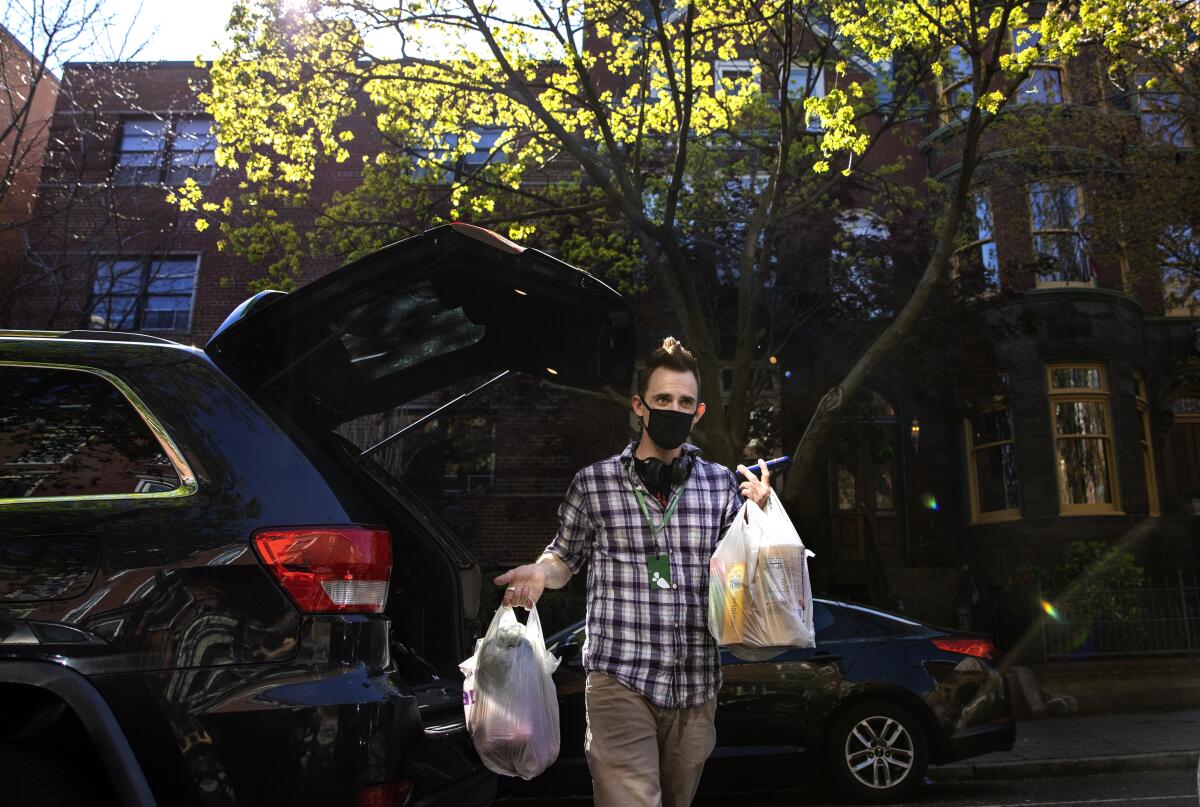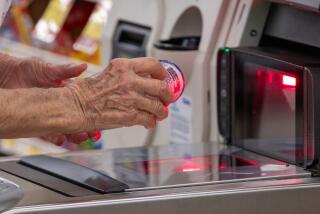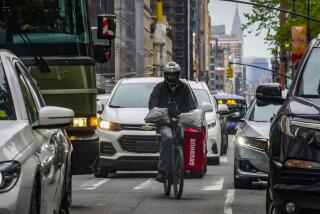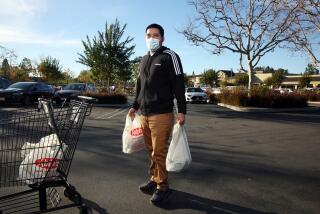Editorial: Food and grocery workers are essential. They should have ‘essential’ pay and protection too

- Share via
It shouldn’t take a pandemic to make people appreciate the grocery clerk, the shelf stocker, the restaurant delivery driver or the personal shopper who picks up the groceries you’ve ordered and drops them at your home.
But here we are. These service workers are now officially essential. And it’s about time they were treated as such.
Grocery and food delivery workers are among the lowest paid and least protected of those deemed “essential” during this crisis. There have been too many instances of grocery clerks discouraged from wearing face masks to shield themselves and food delivery workers denied sick pay even when a doctor has directed them into quarantine. It’s often taken local and state government orders to force employers to take care of their workers.
Last month, Los Angeles County adopted an emergency ordinance requiring Instacart, Postmates and other services that deliver food to provide their drivers with face masks and gloves or hand sanitizer, or alternatively to give them a stipend to buy the protective equipment. The law also orders stores and restaurants to let drivers use their restrooms to wash their hands.
It’s a sad state of affairs when local governments have to order companies to provide basic protections during a pandemic.
Gov. Gavin Newsom followed up with an executive order requiring that workers throughout the food industry — from farm laborers to grocery employees to delivery drivers — receive up to two weeks of paid sick leave if they can’t work because a doctor told them to self-quarantine or their employer prohibited them from doing their jobs in response to COVID-19 concerns.
Nevertheless, grocery delivery service Instacart, which has already been the target of worker strikes, announced last week that its employees would have to take a wellness check before starting work. Any workers who report COVID-19 symptoms, such as a fever or cough, are logged off the platform without pay or sick leave. Only employees with a COVID-19 diagnosis or a quarantine order from a public health official will qualify for sick pay. That sure sounds like it’s contrary to the governor’s executive order. It also puts workers in a terrible spot — they’ll immediately lose income if they report symptoms, which may or may not even be COVID-19.
On Friday, activists representing grocery, retail and delivery workers are planning a nationwide effort to persuade shoppers to boycott Instacart, Whole Foods, Amazon and Target, among other companies, hoping to prod these employers to provide personal protective gear and cleaning supplies, paid leave, hazardous duty pay and transparency on COVID-19 cases in the workplace. These are not extreme demands, considering the risk that workers in the grocery and food delivery sectors face. They should be the bare minimum provided by a responsible employer.
We want food service workers to have on-the-job protections so they can stay healthy and to stay home if they’re sick. It’s only fair. The work they’re doing is essential for the rest of us.
More to Read
A cure for the common opinion
Get thought-provoking perspectives with our weekly newsletter.
You may occasionally receive promotional content from the Los Angeles Times.










